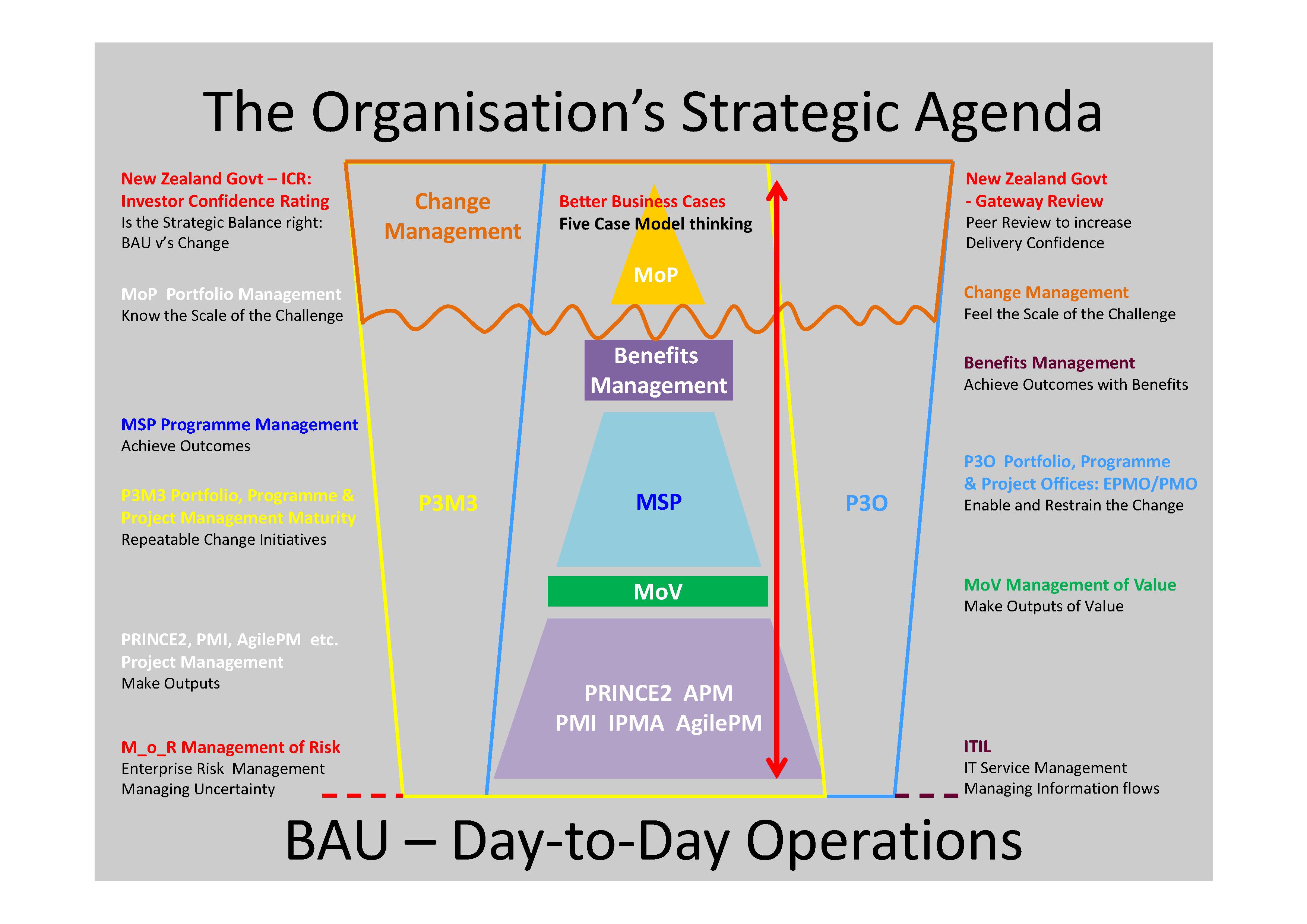[button link="https://www.cclearning.cc/wp-content/uploads/2017/11/CC-Learning-White-Paper-What-is-good-for-my-personal-development-in-project-career-V4.0.pdf" newwindow="yes"] Download PDF version[/button]
In answering these questions there are three perspectives to consider:
These are the main sources and brands in the global project related professional environment:
Both AXELOS and the APMG use the descriptor “ATO” to signify that a training company is an “Authorised Training Organisation” registered with them to provide accredited, certified training in their products. This information can be verified via the AXELOS and APMG websites. Trainers are “Approved Trainers” via the ATO status. The PMI® uses the descriptor “R.E.P.” – Registered Education Provider, a R.E.P.s status can be verified via the PMI website.
The diagram overleaf provides an overview of the various knowledge areas that you should consider within your project related career journey. Not everything is relevant to everyone; it depends upon your career goals and the current and future context of your role / job / status.
The 70 20 10 model
Modern personal development practices tend to structure learning interventions for project managers along a 70:20:10 developmental model:
- 10% classroom based – structured learning
- 20% learning from others - including coaching and mentoring
- 70% work-based – experiential learning.
The model was created in the 1980s by three researchers and authors working with the Center for Creative Leadership, a non-profit educational institution in Greensboro, N.C., USA. The three, Morgan McCall, Michael M. Lombardo & Robert A. Eichinger, were researching key developmental experiences of successful managers. A good way to link all three approaches is to reflect back how each can improve the effectiveness of the other two. So in formal structured learning situation actively think about its application at work. When things go well or don’t go well in a work situation think about the aspects of your capabilities that you need capitalise on or improve.
Think about your own preferences for learning and personal development – what can you afford in terms of time? Do you have a regular commuting journey by train for example that would allow you to read or watch a video? Do you prefer personal study or the opportunity to discuss with other people? The 70 20 10 model can offer plenty of variety to give you flexibility to grow yourself:
70 – Learning from experience, on-the-job:
20 – Learning from Others – Relationships:
10 – Structured Learning
When planning your own CPD – Continuing Professional Development – aim to have a blend of the above approaches that fits your own situation. Think also about what approaches will have credibility with other people. For example, contractors realise they may have the experience and capabilities but that HR and other managers appointing them want to see certifications.
Some organisations and industries have a preference for particular skills, capabilities and credentials. Aim to be “Book Smart” [formal learning] and “Street Smart” [experience on your CV].

The Presenter: David Griffiths 
David Griffiths’ career has been in management roles delivering change activities for marketing, branding, design and education projects. He has worked in both the public and private sectors and has extensive international experience in Europe, India, Argentina, South Africa, Nigeria, Kenya, New Zealand and the Middle East. View full profile here
Qualifications:
MBA, Manchester Business School
MSc, Business Systems Analysis and Design, City University, United Kingdom
Marketing Diploma, Chartered Institute of Marketing
BSc (Hons), Business Studies, Aston University
CC Learning is a trademark of CC Consulting Ltd, London, United Kingdom, Company No. 04519515.
AXELOS, PRINCE2, PRINCE2 Agile, MSP, MoP, P3O, MoR, MoV, P3M3 & ITIL are trademarks of Axelos Limited. APMG International Managing Benefits & Change Management are Trade Marks of The APM Group Limited. All rights reserved. AgilePM is a Registered Trade Mark of Dynamic Systems Development Method Ltd. PMI and PMP are registered trademarks of the Project Management Institute. Better Business Cases™ is a trademark of Her Majesty's Treasury. All rights reserved.




